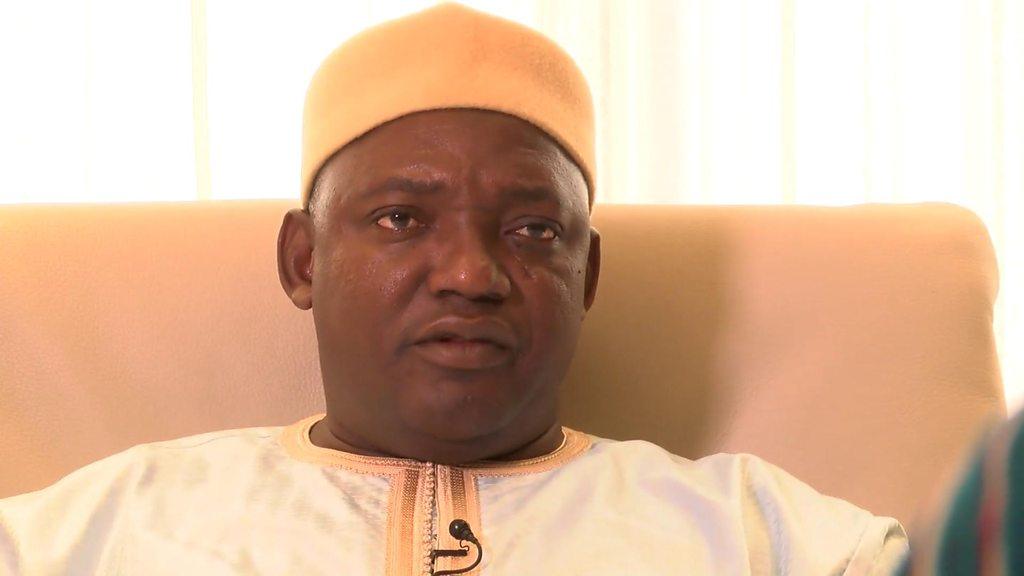Yahya Jammeh: Other leaders accused of looting the coffers
- Published
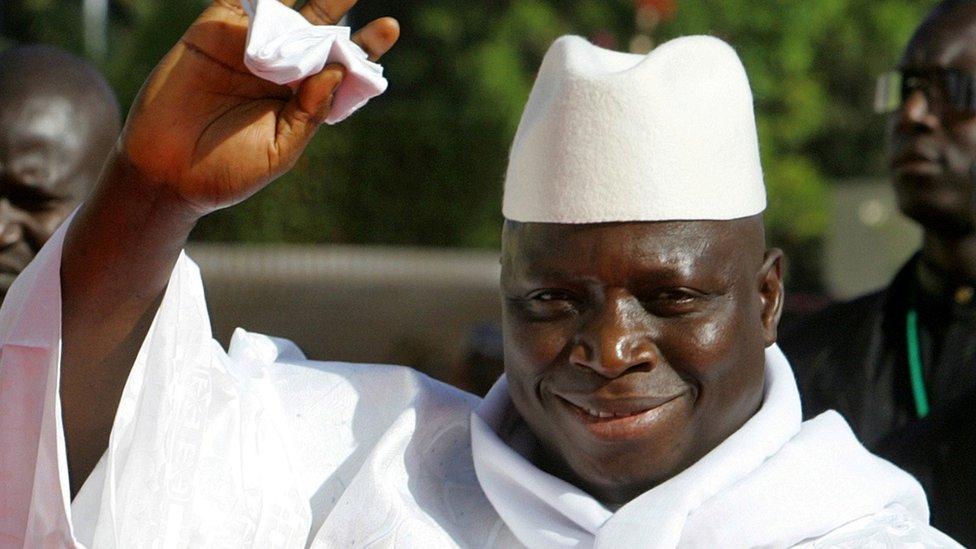
Yahya Jammeh is suspected of stealing state funds, a time-honoured tradition among departing dictators
More than $11m (£8.8m; €10.3m) is reportedly missing from The Gambia's state coffers following the departure of long-time leader Yahya Jammeh, who clung to power for nearly two months despite losing the presidential election in December.
Mr Jammeh, thought to now be in Equatorial Guinea, is not the first leader accused of lining his own pockets with state funds. In fact, many have taken far more. Here are some of the worst offenders.
Sani Abacha, Nigeria
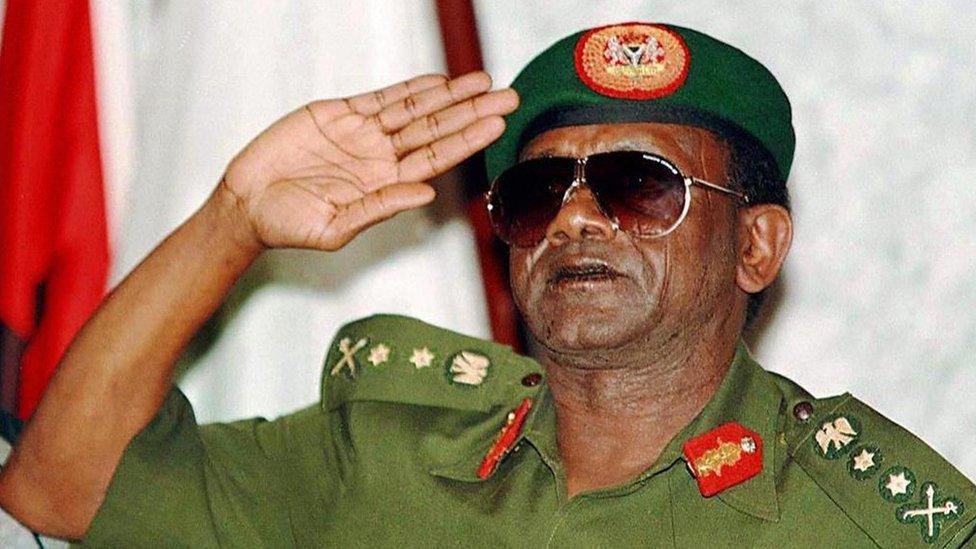
Sani Abacha, the Nigerian leader from 1993 to 1998, reportedly looted somewhere between $1bn and $5bn from the country's coffers using fake funding requests. In 2014 the US Justice Department said it had frozen more than $450m of Abacha's stolen assets.
Suharto, Indonesia
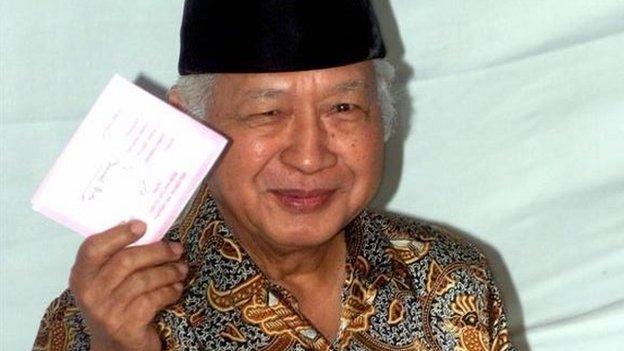
Suharto, the president of Indonesia from 1967 to 1998, is alleged to have cleaned out the country's state funds to the tune of about $35bn. In 2000 he was placed under house arrest and charged with the theft of $570m via fake charities, but court doctors found him too ill to stand trial. He died in 2008.
Mobutu Sese Seko, Zaire
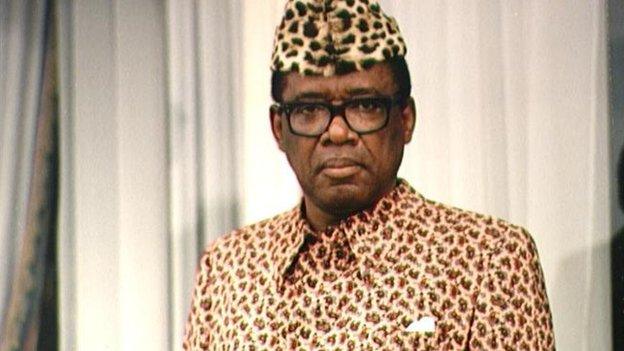
The leader of Zaire (now the Democratic Republic of Congo) from 1965 to 1997, Mobutu ran a murderous regime which brutally suppressed the opposition. He also lived in great style at the expense of the country's people, accumulating international properties including a 30-room mansion in Lausanne worth $5.5m. He is suspected of stealing about $5bn.
Ferdinand Marcos, Philippines
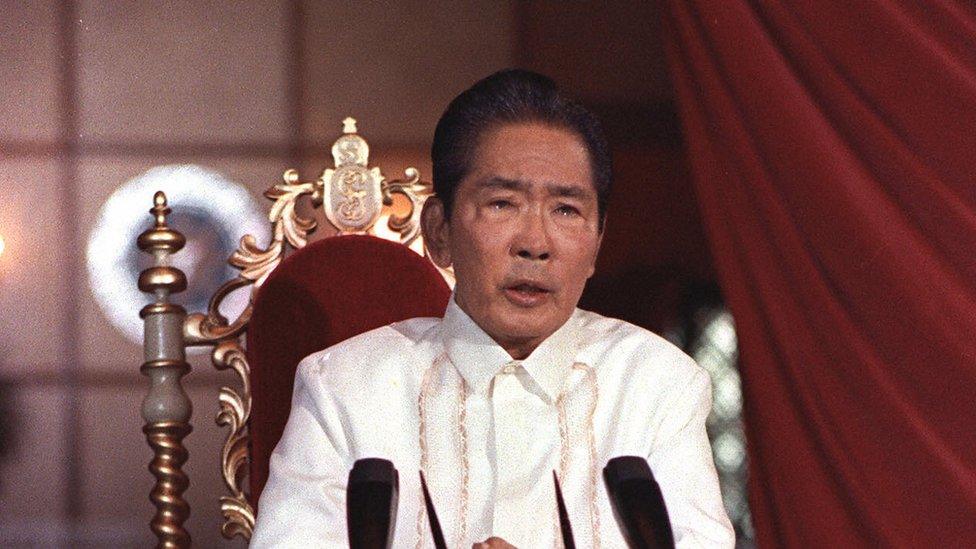
It's the shoes that everyone remembers - the supposed 3,000 pairs of designer shoes accumulated by Marcos' wife Imelda. They became an enduring symbol of the corruption of his leadership of the Philippines between 1965 and 1986. But Marcos is suspected of stealing more than $10bn from the country during his reign. After his death a series of lawsuits forced the Swiss banks in which he stashed the cash to release nearly $700m back to the Philippine authorities.
Ali Abdullah Saleh, Yemen
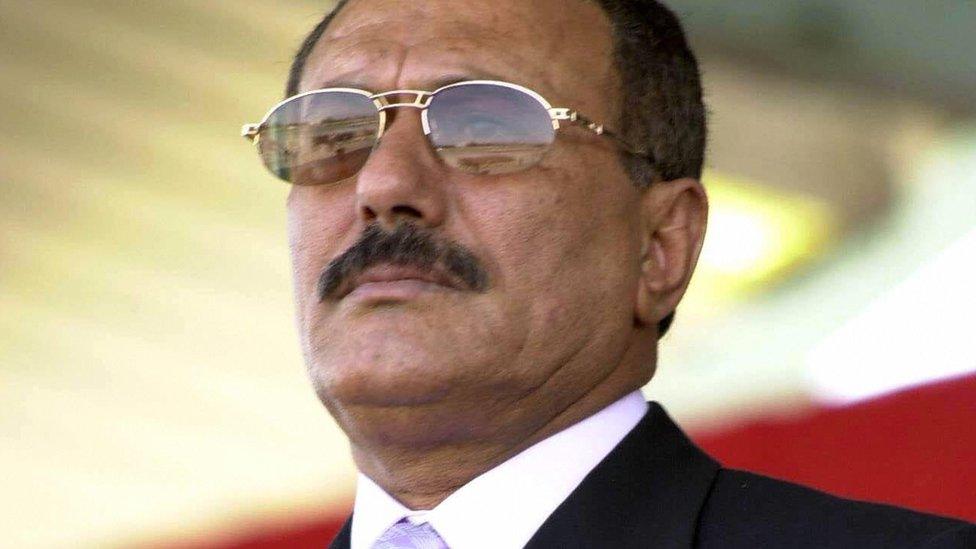
Former Yemeni President Ali Abdullah Saleh is suspected of corruptly amassing as much as $60bn during his time in office - roughly equivalent to Yemen's annual GDP - much of it through schemes to provide oil and gas contracts. He was ousted from power in 2012 after the Arab Spring, but is now allied with the Houthi rebels, locked in battle with the country's internationally recognised government.
Slobodan Milosevic, Serbia
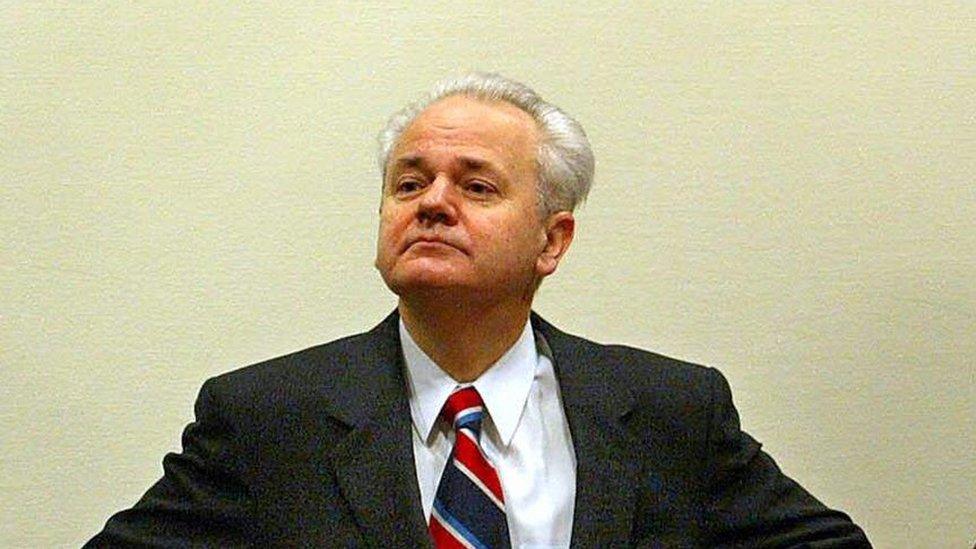
Slobodan Milosevic, the brutal dictator who ran Serbia between 1989 to 1997, was eventually charged with genocide, but he was first arrested on charges of plundering funds from the Serbian state. The total is not known, but he is suspected of stealing $1-$4bn. He died in 2006, while on trial in The Hague.
Hosni Mubarak, Egypt
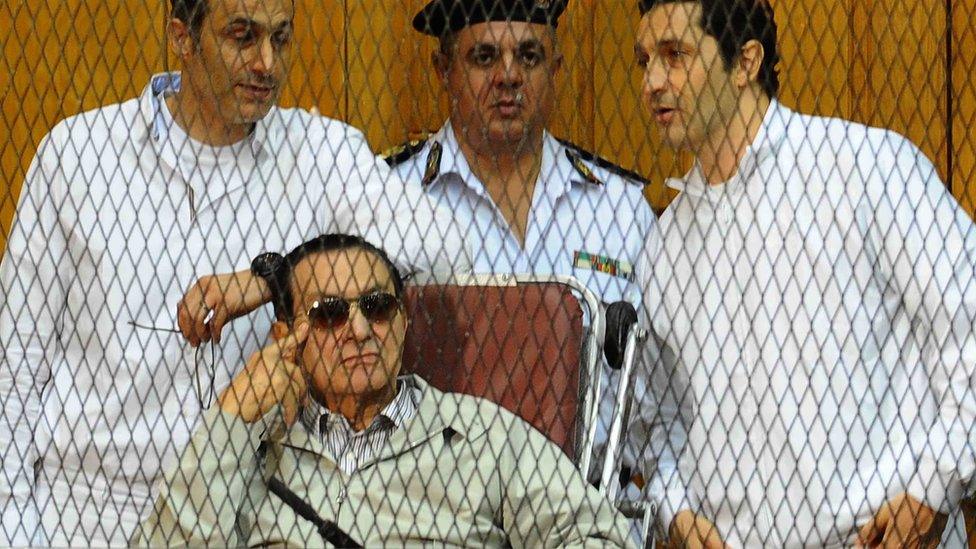
Toppled by the 2011 uprising, Hosni Mubarak went on trial accused of embezzling funds meant for the renovation of presidential palaces to do up his personal properties. Mubarak and his sons were found guilty of embezzling more than $17m over an eight-year period. He was sentenced to three years in prison while his sons, Gamal and Alaa, got four years each.
Ben Ali, Tunisia
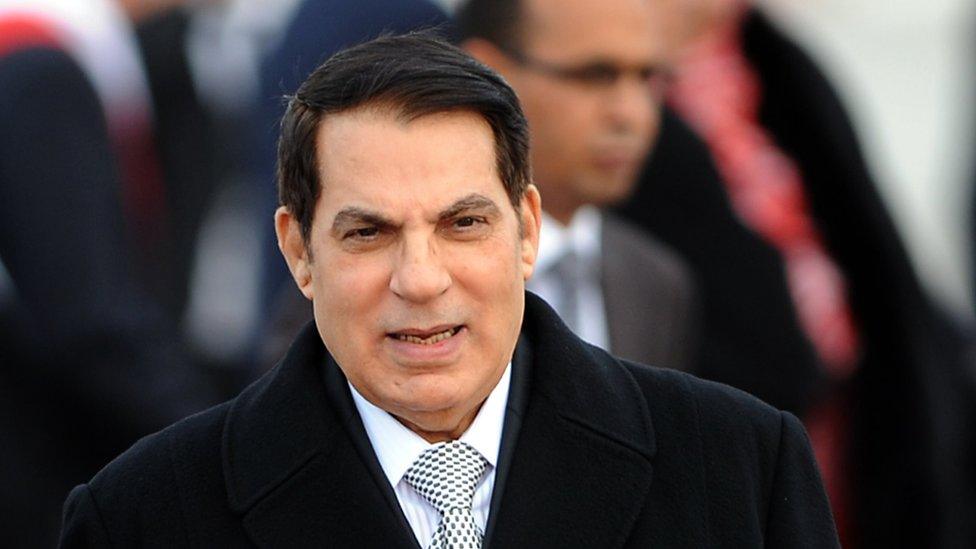
The 2011 overthrow of Ben Ali marked the beginning of the Arab Spring. Ali and his wife fled to Saudi Arabia but a Tunisian court sentenced them in their absence to 35 years in prison for embezzlement and misuse of public funds. At his trial, the prosecution said $27m in jewels and public money had been found at one of his mansions.
- Published23 January 2017
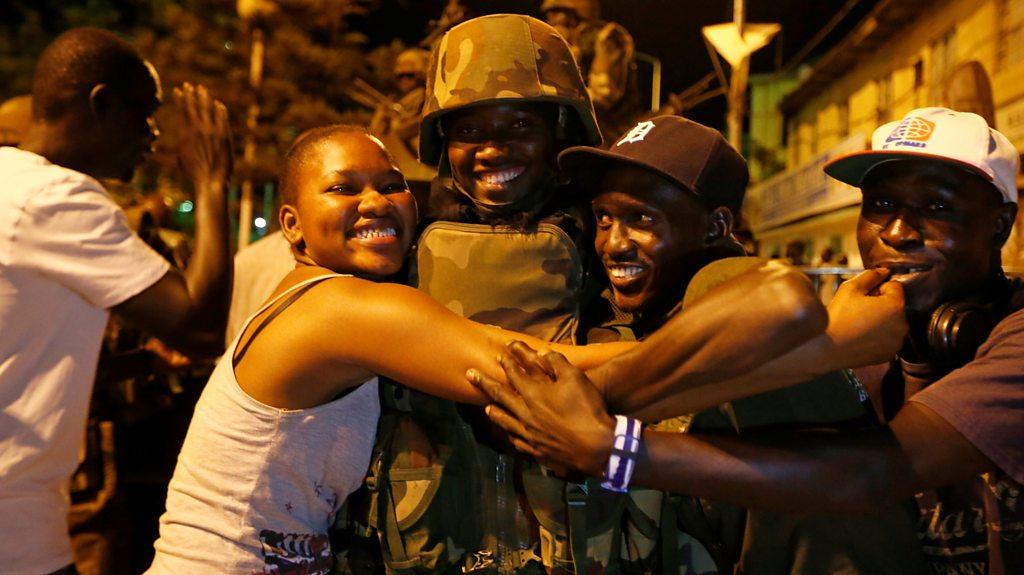
- Published19 January 2017
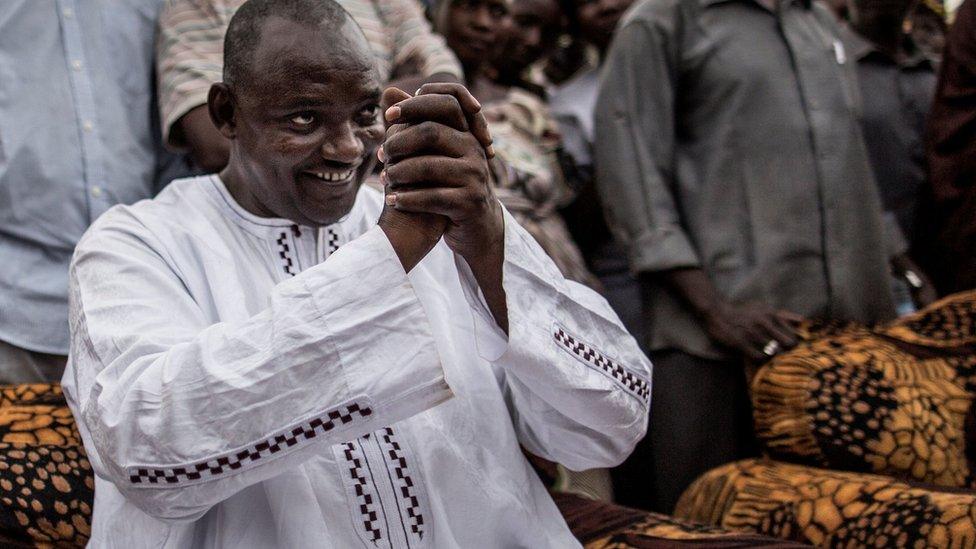
- Published22 January 2017
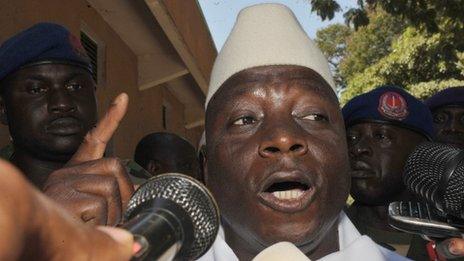
- Published12 April 2023
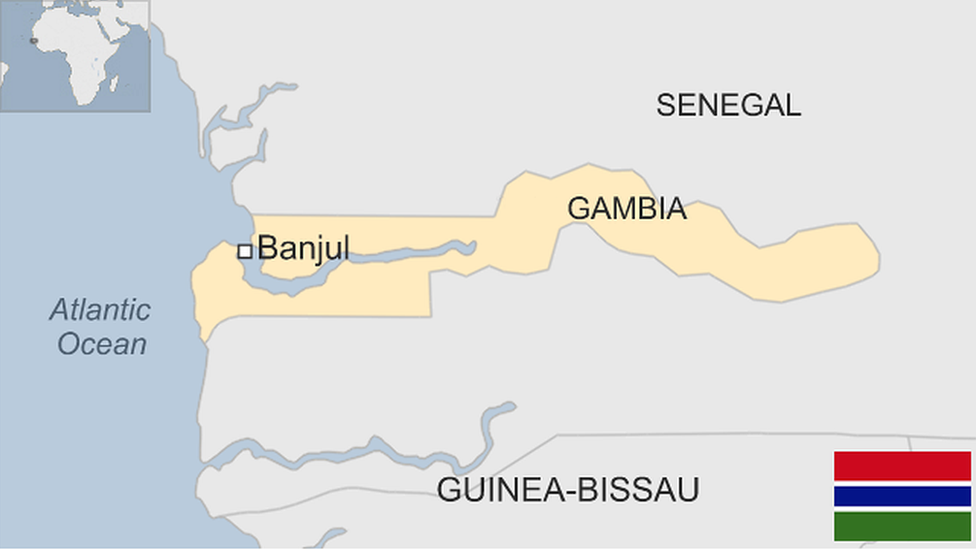
- Published21 January 2017
